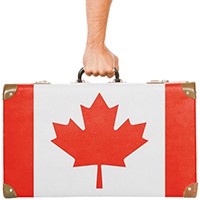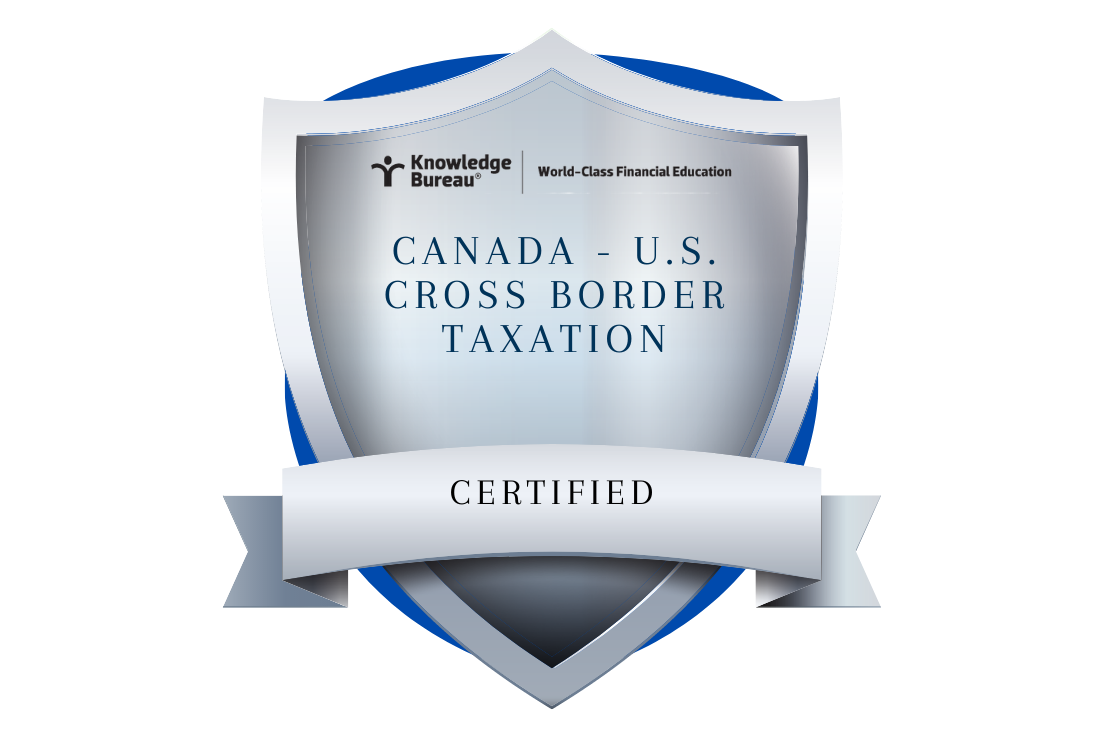Newcomers: Tax Filing For You Is Complex

International tax law is very complex and border-hopping can be expensive from a tax point of view. Newcomers to Canada and immigrants especially need to pay attention, but so do those residents with offshore assets. Be sure you are working with a Tax Services Specialist™ who has graduated from Knowledge Bureau’s Cross Border Taxation Course.
Check out the following requirements, which all taxpayers should take note of:
- If you are a resident in Canada at any time of the year you must file a tax return in Canada and report world income in Canadian dollars. This includes the income from offshore trusts and pensions. You must also declare on Form T1135, the cost of certain foreign assets with cost over $100,000.
- Residents of Canada can be actual, factual or deemed. Certain deemed residents qualify for special tax credits in Canada. Also, it’s possible you can still be tied to your tax obligations in Canada even if you or your money resides offshore.
- Canadian residents who hold foreign investment properties or who transfer or loan money to offshore trusts will be subject to Canadian taxation and complex annual reporting rules.
- Those who immigrate or emigrate are considered to be part-year residents of Canada, but may still have reporting obligations in Canada.
- Upon emigration from Canada, departure taxes must be paid on accrued gains on many assets held at that time. Professional help should be sought to understand which assets require reporting, how capital losses are identified and scheduled and what obligations may arise in both countries, if any, after departure. For example, those who are non-residents may still be required to file a tax return in Canada if they earn employment or self-employment income in Canada or sell taxable Canadian property.
- Taxes paid in other countries on the same world income reported in Canada will be the subject of a foreign tax credit to provide tax relief from double taxation. In other cases, tax treaties will provide relief.
- Non-residents have new tax filing requirements on May 1, 2023 if they are subject to the Underused Housing Tax.

Bottom Line: It pays to know more about cross border taxation to get the filings right for part year residents, non-residents with filing obligations in Canada and residents who travel abroad and/or have property and assets abroad. Be sure you are working with a Tax Services Specialist™ who has graduated from Knowledge Bureau’s Cross Border Taxation Course.
What’s the Cross Border Taxation Course About?
As baby boomers age, technology makes it possible for people and businesses to operate globally, and economic changes make it appealing for people and businesses to purchase investment property globally.
Plus, the increase in the sharing of financial information between countries, cross border taxation issues become key for cross border employment, entrepreneurship or asset ownership, as does the issue of residency and U.S. citizenship.
What Will You Learn?
-All relevant and recent tax changes.
-The chapters feature case studies, which will ensure that you'll be able to adequately explain such subjects as how Canadian and U.S. tax laws differ, the benefits and protections of tax treaties, how U.S. estate and gift taxes apply to residents and non-residents, how to enter the U.S. to work or live, the tax consequences of terminating residence, and what is FATCA (Foreign Account Tax Compliance Act) and what are its effects.
“The course and the case studies cover a lot of real-life situations for residents of both countries. Each chapter is written in such a way that is simple and easy to understand. A lot of the technical parts of the course can be further researched in your EverGreen Explanatory Notes. This is a perfect course for someone who wants to gain a working knowledge of cross border taxation issues between the U.S. and Canada.”
—Richard L., ON
Enrol today!
Evelyn Jacks is Founder and President of Knowledge Bureau, holds the RWM™, MFA ™, MFA-P™ and DFA-Tax Services Specialist designations and is the best-selling author of 55 books on tax filing, planning and family wealth management. Follow her on twitter @evelynjacks.
©Knowledge Bureau, Inc. All rights Reserved